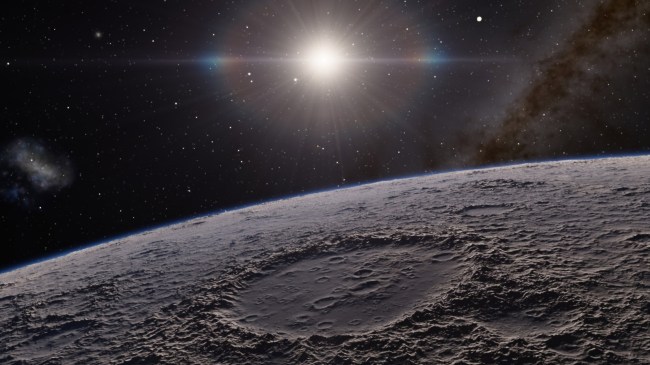iStockphoto
A NASA official claims that they expect humans to be living on the moon by the end of this decade.
That would be truly remarkable if it happens because as Elon Musk has repeatedly claimed, his SpaceX company will have also put humans on Mars by the year 2026.
According to Howard Hu, who who leads NASA’s Orion lunar spacecraft program, “We’re going to be sending people down to the surface and they’re going to be living on that surface and doing science.”
Hu’s claim comes following NASA’s successful launch of its Space Launch System, or SLS, rocket in late 2022.
That launch saw NASA’s Artemis I take off from the Kennedy Space Center with an uncrewed Orion capsule. The next Artemis flight, currently scheduled for September 2025, is planned to have a crew onboard.
The current mission is to test whether it will be possible to land humans on the moon sometime within the next three years. The most important part of the Artemis I mission will, of course, being able to bring the Orion module safely back to Earth.
Once that is complete, NASA plans to send a crew to the moon to search for signs of water near the moon’s south pole.
If that is found, then the next step will be creating habitats and facilities for astronauts to convert the water into a fuel for spacecraft that will be traveling further into space, such as to Mars. (Space hotels will come later.)
“It’s really going to be very important for us to learn a little bit beyond our Earth’s orbit and then do a big step when we go to Mars,” the BBC reported Hu told Sunday with Laura Kuenssberg.
“And the Artemis missions enable us to have a sustainable platform and transportation system that allows us to learn how to operate in that deep space environment.”
Last week, NASA unexpectedly lost contact with Orion for 47 minutes, but were able to re-establish contact and reported that it had no negative impact.
The Orion capsule is due to return to Earth on Dec. 11.
“It’s really going to be very important for us to learn a little bit beyond our Earth’s orbit and then do a big step when we go to Mars,” said Hu.
“And the Artemis missions enable us to have a sustainable platform and transportation system that allows us to learn how to operate in that deep space environment.”

